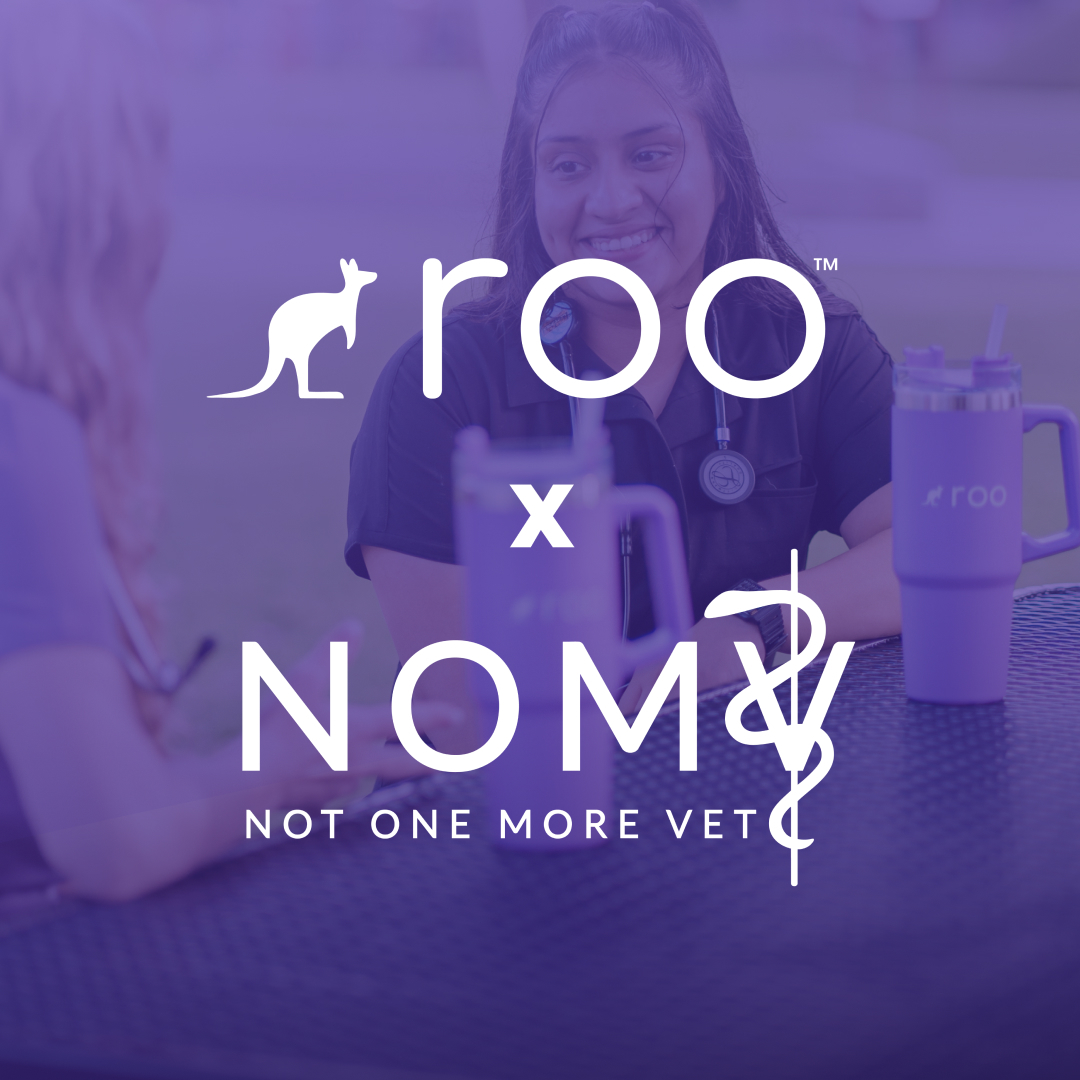If you’re sniffing around for your next veterinarian job or hoping to hop into one of those sought-after veterinary assistant jobs, you’ve probably noticed, the competition is fierce. You’re not alone in the pack, and it can feel a bit like a game of musical chairs, only with more fur and less music. But don’t worry, you’ve got plenty of ways to make yourself the top pick, whether you’re a seasoned Vet, a bright-eyed Tech, or just starting your journey in veterinary jobs.
Let’s get real: the veterinary job market is booming, but so is the number of talented folks chasing those roles. So, how do you stand out when everyone’s bringing their A-game and a love for animals? Grab your stethoscope, and let’s dig in Roo-style.
Why the veterinary job market is so competitive
First, let’s talk about why the competition is hotter than a dog park in July. Pet ownership in the U.S. is at an all-time high, and people want the best for their furry (or scaly, or feathered) friends. That means more jobs for Vets, Techs, and Assistants, but also more folks applying for those jobs.
Add to that a wave of retirements, new grads entering the field, and a growing demand for advanced care and you’ve got a job market that’s moving faster than a greyhound at dinnertime. The good news? There are a lot of opportunities. The challenge? Standing out from the crowd.
The secret sauce: what employers are really looking for
Sure, every veterinary job posting lists the basics, education, experience, and a love for animals. But what are hiring managers actually looking for? Here’s what will have them wagging their tails:
- Adaptability: Clinics want people who can roll with the punches. One minute you’re handling a routine vaccine, the next you’re helping with an emergency.
- Teamwork: No lone wolves here. Veterinary medicine is a team sport.
- Communication: You need to explain complicated things to pet parents (without making their heads spin) and keep your team in the loop.
- Compassion: For animals, obviously, but also for their sometimes-nervous humans.
- Problem-solving: When things get hairy (literally and figuratively), can you think on your feet?
If you can show you’ve got these skills, not just say you have them, you’re already ahead of the pack.
Building your skills (and your confidence)
You don’t have to be a unicorn to get noticed, but you do need to keep growing. Here’s how you can sharpen your claws (in a good way):
Get hands-on experience
Nothing beats real-world experience. Volunteer at shelters, shadow a Vet, or pick up relief shifts. (Psst.. Roo makes it easy to find flexible shifts so you can build your skills and your network at the same time. Grow your skills through flexible shifts, check out the link for more info.)
Specialize (but don’t pigeonhole yourself)
If you’ve got a passion for dentistry, surgery, or exotics, go for it! Specialized skills are in demand, and they show you’re willing to go the extra mile. But don’t forget, being a well-rounded candidate is just as important. The best Vets and Techs can handle anything that hops, slithers, or scurries through the door.
Keep learning
The best professionals never stop learning. Attend conferences, join webinars, and stay up to date on the latest in animal care. Roo’s always hosting free CE events and yes, they’re actually fun. You’ll meet new people, learn new tricks, and maybe even score some Roo swag.
Show off your soft skills
It’s not just about what you know, it’s how you show up. Are you the calm in the storm when a pet parent is panicking? Can you make a stressed-out team member laugh? These “soft” skills are what make you memorable and hirable.
Crafting a resume that gets noticed
Let’s face it, most resumes look the same. So, how do you make yours stand out in a stack taller than a Great Dane? Here’s how:
- Tailor it: Don’t send the same resume to every job. Adjust your experience and skills to match what the clinic is looking for.
- Highlight results: Instead of just listing duties, share what you accomplished. Did you streamline a process, train new staff, or help increase client satisfaction?
- Include the extras: Volunteer work, continuing education, or unique experiences (like working with wildlife or in a specialty practice) can set you apart.
- Keep it clean and easy to read: No one wants to squint at tiny fonts or dig through walls of text.
Nailing the interview (without breaking a sweat)
Interviews can be nerve-wracking, but they’re also your chance to shine. Here are some tips to help you walk in with confidence:
- Do your homework: Research the clinic or hospital. What’s their vibe? What do they value? Mention something specific in your interview, it shows you care.
- Prepare stories: Be ready to share examples of how you handled tricky situations, worked with a team, or learned something new.
- Ask questions: Interviews go both ways. Ask about the team, the types of cases they see, or how they support professional development.
- Be yourself: Seriously. Clinics want to know who you are, not just what you’ve done.
Networking: it’s not just for extroverts
You don’t need to be the life of the party to build a strong network. Sometimes, all it takes is showing up at a Roo event or connecting with fellow professionals on LinkedIn. Here’s why networking matters:
- You’ll hear about jobs before they’re posted.
- You’ll get honest advice from people who’ve been there.
- You might even find a mentor who helps you grow your career.
And don’t forget, networking is a two-way street. Share your own experiences, help others out, and you’ll build relationships that last.
Making the most of relief and locum work
Here’s a little secret: relief work is on the rise, and it’s changing the game for Vets and Techs. More than 10 percent of all paid veterinary employment is now relief or locum work, and it’s growing fast. Why? Flexibility, higher pay, and a chance to try out different clinics without being locked into a long-term contract (no more feeling stuck like a cat in a carrier).
Roo connects you with relief shifts that fit your schedule and your career goals. Want to see what’s out there? Sign up for Roo and search shifts, it’s quick, easy, and you might just find your new favorite workplace.
Show your passion (and let your personality shine)
Veterinary medicine is more than a job, it’s a calling. Let that passion show in your applications, interviews, and daily work. Share why you love what you do, and don’t be afraid to let your personality peek through. A little humor, a lot of heart, and a genuine love for animals will set you apart every time.
Taking care of yourself (because burnout is real)
Let’s get real for a second, veterinary medicine can be tough. Long hours, emotional cases, and the pressure to do it all can take a toll. That’s why self-care isn’t just a buzzword, it’s a necessity.
- Set boundaries: It’s okay to say no sometimes.
- Find support: Lean on your team, mentors, or the Roo community when you need a boost.
- Take breaks: Whether it’s a walk with your dog or a weekend off, rest is important.
Roo’s all about supporting Vets and Techs, from flexible shifts to wellness stipends that even cover your pets’ medical needs. Because you deserve care, too.
What about the corporate world?
We know, the corporate side of veterinary medicine can be a bit… polarizing. Some folks love the structure and benefits, while others worry about patient care and work conditions. At Roo, we stay neutral and focus on helping you find the right fit for your career, whether that’s in a big hospital or a small private clinic. The key is knowing what matters most to you and asking the right questions during your job search.
How to transition or try something new
Thinking about switching gears? Maybe you want to move from clinical work to management, or try your hand at teaching or research. Here’s how to make the leap:
- Identify your transferable skills: Communication, leadership, and problem-solving go a long way in any role.
- Get the right certifications: Some paths require extra training, Roo’s free CE events can help.
- Network with people in your desired field: Ask questions, learn about their day-to-day, and see if it’s the right fit.
- Be open to starting small: Sometimes, you need to take a step sideways before you can move up.
You can also check out career opportunities at Roo, we’re always looking for passionate Vets and Techs to join our mission-driven, remote-friendly team.
Benefits that matter (and how to spot them)
Salary is important, but don’t overlook the perks that make a job truly great. Look for:
- Health insurance (for you and your pets!)
- Continuing education support
- Flexible schedules and PTO
- Wellness stipends
- Retirement plans
Ask about these during your job search, they can make all the difference in your long-term happiness.
Ready to hop ahead in your career?
Standing out in the veterinary job market isn’t about being perfect, it’s about being real, ready to learn, and willing to go the extra mile (or hop). Whether you’re looking for your next veterinarian job, exploring veterinary assistant jobs, or just want to grow in the world of veterinary jobs, Roo’s here to help you every step of the way.
Check out our upcoming events, sign up for flexible shifts, or just reach out if you need a pep talk. We’re rooting for you, pun absolutely intended.
FAQs: your burning questions, answered
1. How can I stand out in a competitive veterinary job market?
Answer : Showcase your hands-on experience, highlight both technical and soft skills, and let your passion for animal care shine in every interaction.
2. What skills are most sought after for veterinary jobs?
Answer : Skills that are Most sought after for veterinary job
- Adaptability, teamwork, and strong communication
- Compassion for animals and their humans
- Problem-solving and the ability to stay calm under pressure
3. What should I include in my veterinary job application?
Answer : Tailor your resume for each job, focus on results and unique experiences, and keep your application clean and easy to read.
4. How do I keep up with industry trends?
Answer : Attend events, read trusted sources like JAVMA and Clinician’s Brief, and check out Roo’s free CE events for the latest updates.
5. How can networking help my career?
Answer : Networking helps you hear about jobs early, learn from others, and build relationships that support your growth.

.png)




.png)
.png)




